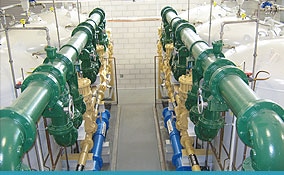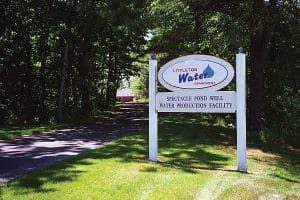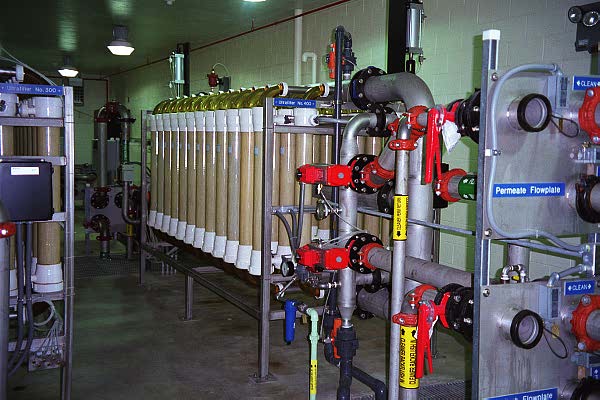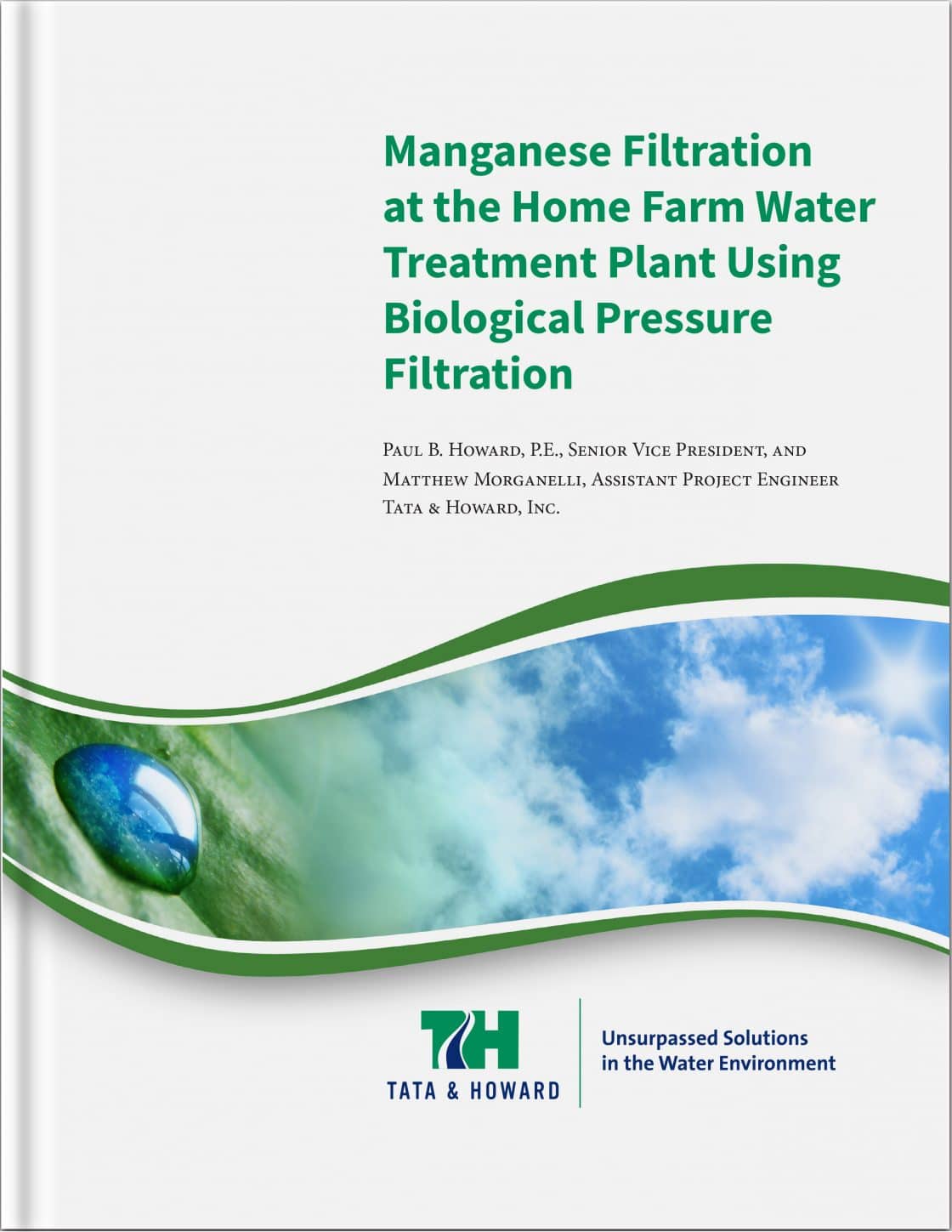Water Treatment Facility – Natick, Massachusetts
Due to contamination from Volatile Organic Compounds (VOCs) at two of the Town’s water supply wells, the Town of Natick took steps to construct a water treatment facility to treat the water from the contaminated wells. Tata & Howard conducted a water treatment facility siting evaluation and pilot study; and completed the design of the treatment facility, which utilizes air stripping and pressure filtration technology.
 During the course of the design, it was determined that the backwash water would not be permitted by the MWRA to be discharged into the sewer system. Therefore, alternatives needed to be evaluated. One option was to provide holding tanks for the backwash water. This would enable the Town to recycle the supernatant to the head of the facility and therefore, minimize waste of the supply water. Since the area was not conducive for the installation of drying beds, the sludge collected at the bottom of the holding tank was removed by means of a septage hauler.
During the course of the design, it was determined that the backwash water would not be permitted by the MWRA to be discharged into the sewer system. Therefore, alternatives needed to be evaluated. One option was to provide holding tanks for the backwash water. This would enable the Town to recycle the supernatant to the head of the facility and therefore, minimize waste of the supply water. Since the area was not conducive for the installation of drying beds, the sludge collected at the bottom of the holding tank was removed by means of a septage hauler.
Tata & Howard proposed to recycle the backwash water, which required DEP approval as it had not been done before in the state. DEP gave approval and now recycled backwash water is used in numerous water treatment facilities in Massachusetts.
Spectacle Pond Water Treatment Facility Littleton, Massachusetts
The Spectacle Pond Water Treatment Facility removes iron and manganese from a 1.5 mgd source well, utilizing a combination of preozonation for oxidation followed by ultrafiltration membranes.

This combination of treatment processes provides secondary benefits for this well, which is under the influence of surface water from the adjacent Spectacle Pond. The secondary benefits include superior water quality, barrier protection from contaminants and microorganisms, significant reduction in chemical use, and minimal waste production. Because the water quality is superior, the Town was granted a waiver for chlorination from the MassDEP, which was the first such waiver in Massachusetts. The plant was the first of its kind in the United States and the first municipal application of ultrafiltration in Massachusetts.



 During the course of the design, it was determined that the backwash water would not be permitted by the MWRA to be discharged into the sewer system. Therefore, alternatives needed to be evaluated. One option was to provide holding tanks for the backwash water. This would enable the Town to recycle the supernatant to the head of the facility and therefore, minimize waste of the supply water. Since the area was not conducive for the installation of drying beds, the sludge collected at the bottom of the holding tank was removed by means of a septage hauler.
During the course of the design, it was determined that the backwash water would not be permitted by the MWRA to be discharged into the sewer system. Therefore, alternatives needed to be evaluated. One option was to provide holding tanks for the backwash water. This would enable the Town to recycle the supernatant to the head of the facility and therefore, minimize waste of the supply water. Since the area was not conducive for the installation of drying beds, the sludge collected at the bottom of the holding tank was removed by means of a septage hauler.
